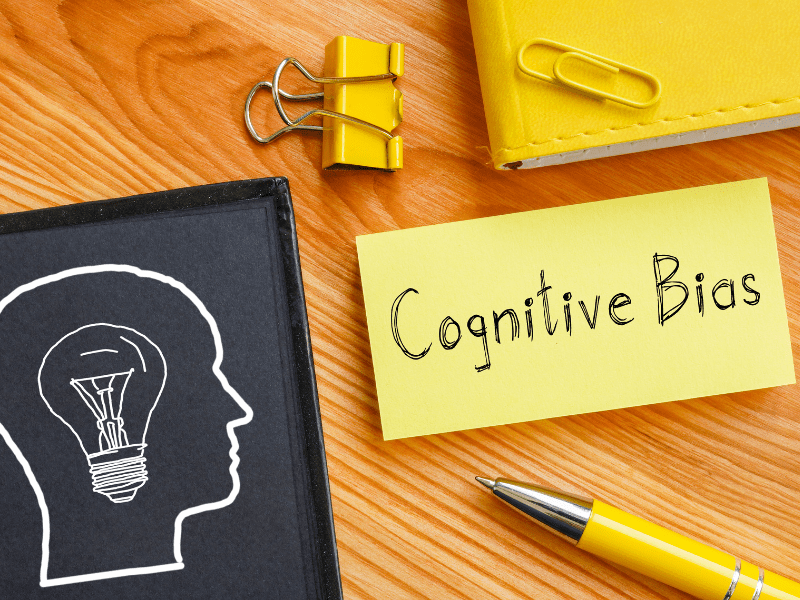🎧 Audio Version
Projection is a common bias that we all fall victim to at times. It’s the opposite of empathy – it’s when we take what’s going on inside our own minds and mistakenly assume that’s what other people think as well. This post sheds lights on the psychological contrast between projection vs empathy.
What are the Key Psychological Contrast between Projection vs Empathy
Projection is the tendency to falsely attribute our own thoughts and feelings onto another person.
It’s a type of cognitive bias that is often done unconsciously without us even realizing it.
For example, someone who is very self-critical and has a negative perception of themselves is likely to believe that other people are critical of them and have a similar negative perception.
During projection, the “internal” becomes “external” – we assume what is true for our self is also what is automatically true for others.
In many ways, projection is the opposite of empathy.
Instead of genuinely understanding someone, we take what’s going on inside ourselves and we project that into the lives of others; it’s a type of mind-reading where we wrongly assume we know what is going on in a person’s head (without asking or clarifying).
Projection can take many different forms, harmful examples include:
- Shifting blame to someone else for doing something you’ve done.
- Assuming your partner is cheating on you when you’re cheating on them.
- Bullying someone for things we don’t like about ourselves.
- Assuming other people are being dishonest or lying in a situation where we’d lie.
- Believing others are negatively judging us for things we are insecure about.
- Calling someone sensitive when you lash out after being hurt or offended.
- Thinking “everyone is selfish” because you are selfish.
The common pattern behind all these examples is shifting what is true about yourself onto others.
Projection is often seen as a type of “defense mechanism” to protect our egos. Instead of confronting our problems, flaws, or insecurities, we try to find them in others to distract focus away from ourselves.
As Carl Jung once said, “Everything that irritates us about others can lead us to an understanding of ourselves.”
He believed that aspects of our “shadow” or the dark sides of our personality were particularly likely to give rise to projection, both on a personal level and societal level, because those are the things, we most want to deflect or ignore.
It’s easier to blame others than to confront things we don’t like about ourselves.
For example, someone who says something wrong may be shouted down as being “Stupid!” by someone who also fears being called “Stupid!” by others and has had similar experiences in the past being made fun of.
When someone gets under our skin or annoys us, it can be helpful to ask, “What does this say about me?” It’s possible the person is reminding you of something you don’t like about yourself.
Projection isn’t always malicious or harmful. It can also take innocent forms such as assuming people will like a certain movie or restaurant simply because we did.
In general, people assume others are similar to them.
In psychology this is sometimes referred to as “social projection” (or the false consensus effect), where we wrongly assume our thoughts and behaviors are “common” or “normal” to most people.
Of course, our personal experiences are the first reference point into how others may feel. The idea of, “I wouldn’t like that if I were in their shoes” is a basic building block toward empathy.
Naturally, we share a lot of commonalities with each other, especially when it comes to basic needs like wanting to be safe, loved, and respected. Recognizing those commonalities is essential for feeling interconnected and recognizing our basic humanity.
However, genuine empathy requires acknowledging both similarities and differences of others.
Human beings are diverse, so we can’t expect that everyone is going to be exactly alike.
People can lead radically different lifestyles and still be happy. An introverted writer who prefers staying home will likely have a hard time living as a rockstar musician who is always traveling and putting on shows for big audiences.
Both will have trouble empathizing with each other unless they are open to different perspectives and different types of people.
The simple acknowledgement, “I’m the type of person who prefers solitude, but this person thrives around being with others” is recognizing differences while still being empathetic and understanding where a person is coming from.
Therefore, self-awareness and empathy are so intertwined. Not everyone is like you. Often, we must learn the ways we “stand out” from others to better understand them (and ourselves).
For example…
- If you’re a naturally shy or introverted person, you may have difficulty empathizing with someone who is more outgoing or extraverted.
- If you only enjoy classical music, you may have difficulty understanding someone who only listens to metal and hardcore music.
- If you’re married with kids, it may be difficult to empathize with someone who chose to be single or not start a family.
None of these things are “right” or “wrong,” they are just different ways people choose to live.
These choices often make perfect sense to the other person, even if you can’t relate or you wouldn’t do the same in their shoes.
To empathize, you have to temporarily let go of your personal biases, prejudices, and preferences to understand another person.
It’s not easy, but if you can do that, you’ll be better at minimizing projection in your daily life.













